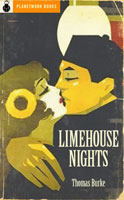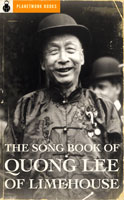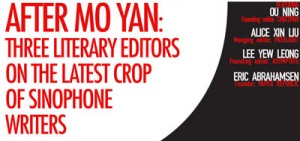Posted: January 24th, 2013 | No Comments »
Apparently this beautiful book is available on in a limited edition of 100 from ModernBooks – Fan Ho’s Hong Kong Yesterday, but even a look a few pictures on line is worthwhile as they are superb. I think there is a non-limited edition too.
According to the publishers –
Also available, a LIMITED EDITION of 100 books in a matching slipcase,
with a signed and matted 8 x10 inch print, Controversy –
(Please note that over 60% of the LIMITED EDITION has already been pre-purchased. Very limited quantity.)
Introduction by John A. Bennette
Afterword by Mark Pinsukanjana and Bryan Yedinak

Posted: January 23rd, 2013 | No Comments »
In a bit of a rush today due to heavy snow in the UK…so here’s a picture of snow in Port Arthur (Lushun)….

Posted: January 21st, 2013 | No Comments »
Yesterday’s post on the Shanghai Restaurant’s cook book from 1936 got me thinking about other early Chinese cookery books in English…so here’s a few (I’m sure there’s loads more but these ones grabbed my attention for one reason or another)….

Chinese Cook Book by Shiu Wong Chan published by Frederick A. Stokes of New York, 1917. Contains Chinese recipes adapted for the American kitchen, with transliterations of names and also with Chinese characters. Recipes include Salt Chicken, Fried Noodles, Potato Pork, and Duck Chop Suey.
 The Chop Suey Cook Book was published by the How Long Publishing Co. in 1924 in New York…
The Chop Suey Cook Book was published by the How Long Publishing Co. in 1924 in New York…

The great author and intellectual Lin Yutang published three cookery books – this one, Cooking with the Chinese Flavour, in 1958 in America – with his wife Lin Tsui Feng and daughter Lin Hsiang Ju. Dr. Lin wrote introductions which explained the historical background and relevance for American life.

The Nanking Cook Book was published by the American Red Cross in 1940 as a reprint of the Book of Recipes for the Use of Chinese Foodstuffs, originally published in Shanghai by the Presbyterian Mission Press in 1924 and contains a mix of English and Chinese dishes.
Posted: January 17th, 2013 | 1 Comment »
Should really just note in a rather ghastly act of self-promotion that Midnight in Peking has just been nominated for an Edgar award in America, the awards of the Mystery Writers of America. I believe that the winners are announced in May. All very flattering and much appreciated….would obviously love to possess an Edgar!

Posted: January 16th, 2013 | No Comments »
A selection of the non-fiction I read and appreciated in the second half of last year – not exhaustive and not all necessarily published in 2012 (but within the recent past at least)…
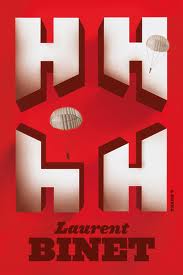
HHhH – Laurent Binet – a tour de force as the French would say (and fitting as Binet is French) – the idea of weaving Binet’s investigation and recreation of the assassination of Heydrich in Prague with his own mixed feelings doing the research.
Death in the City of Light: The True Story of the Serial Killer Who Terrorised Wartime Paris – David King – a re-telling of the case of Marcel Petiot who was a serial killer in occupied Paris during the war. This is a little known story (at least on the English side of the Channel) and horrific.
A Dance with the Dragon: The Vanished World of Peking’s Foreign Colony – Julia Boyd – Boyd’s telling of the lives and quirks of the foreigners that inhabited old Peking is fun and romps along at a pace – a great overview of a lost world that obviously appealed to me!!
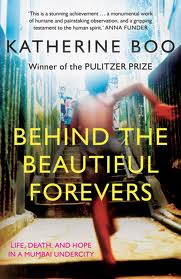
Behind the Beautiful Forevers: Life, Death and Hope in a Mumbai Slum – Katherine Boo – a rather lyrical account of the slums of Mumbai. What is fascinating is the micro worlds that exist in the slums – small business, entrepreneurs both business an social – but at the end it is the unremitting despair and obstacles people face that comes through. Certainly the best book on Mumbai since Sukehtu Mehta’s brilliant Maximum City (and on, how many writers wish they’d got to that title first!!)

Ian Fleming’s Commados: The Story of 30 Assault Unit in WW2 – Nicholas Rankin – Britain remains in the midst of a prolonged bout of Fleming mania at the moment. And a good thing too, Fleming, Bond and all that is terrific. But Fleming’s wartime exploits are also amazing and worth covering and done well by Rankin. Worth noting here a short biography of one of Fleming’s fellow authors turned espionage experts Tina Roseberg’s D For Deception about the wartime experiences of Dennis Wheatley.
Nancy Mitford – Selina Hastings – originally published in 2010 but just out in Kindle edition so worth noting. Hastings is, for my money, the best biographer working today (see her Somerset Maugham bio) and this bio of Nancy Mitford is no disappointment either. Hastings places Nancy wonderfully within the mad Mitford world and explains the depth to what are often seen as her ephemeral novels. A cut above the usual fare that populates the Mitford Sisters publishing machine that continues.

Voodoo Histories – David Aaronovitch – useful rendition of the ridiculous theories around everything from 911 to Monroe to Diana to Hilda Murrell and David Kelly. The problem of course is the same as Hitch had with God is not Great – Aaronovitch expertly reveals the ridiculousness of conspiracy theory “arguments” and the possible delusions and delusional behind them but to those of us who reject conspiracy theorists and nonsense like God these books just confirm what we know. I fear they don’t persuade the delusional conspiracy theorists or the superstitious believers sadly.
The Secret Life of France – Lucy Wadham – OK, so I know a bit more about the French than I did before this book – their odd approach to sex, their complete lack of a sense of humour beyond that of a British 7 year old….but still they remain a mystery to me over there on that side of the Channel. Weirdos, the lot of ’em.
Posted: January 15th, 2013 | No Comments »
Chinese Literature in Translation: a forum with Asymptote and Pathlight magazines
Thursday, January 17 7:30pm
40/50rmb
In light of Mo Yan’s recent Nobel win, the spotlight has turned to contemporary Chinese literature. But the barriers of language and culture that confront the non-Chinese reader are often daunting.
The editors of three literary journals – Asymptote,  Chutzpah! and Pathlight – come together to discuss their role mediating between non-Chinese readers and the latest crop of Chinese writers, specifically through presenting Chinese works in translation.
Join Asymptote, an online journal of literature from around the globe, as it prepares to celebrate its second anniversary with a launch event in Beijing.
 Ou Ning, Founder and Editor-in-Chief,
Chutzpah!
Posted: January 13th, 2013 | No Comments »
Just as a quick follow up – I mentioned the The Shanghai Emporium in a post on the Shanghai Restaurant’s Cookery Book the other day – both the restaurant and Emproium were in London’s Greek Street, down in Soho. It seems the restaurant ran a food store selling Chinese goods on the same street in the 1930s and also advertised it in its branded cookery book. The ad below
BTW: 6 Greek Street today is still food-related by, perhaps in a sign of the changing foodie times in London, is now Le Bavoir Restaurant, described as “Modern European with Moroccan and Lebanese Influences.” (i.e. tagine with a knife and fork) – picture of the building today below…just a few doors down from the rather well known Gay Hussar restaurant, a surviving Soho institution.



Posted: January 13th, 2013 | 1 Comment »
Searching round the other day for Thomas Burke covers (see my China Rhyming tumblr post) I came across an interesting e-book publisher, PlanetMonk Books. They’ve reissued several of Burke’s works (for just a dollar or so) including Limehouse Nights and The Song Book of Quong Lee of Limehouse. Anyone interested in the late nineteenth and early twentieth century will find this a great list – I’ll put the Burke covers below plus a wonderful Chonoiserie inspired cover for Compton Mackenzie’s Carnival (1912). Thought these worth a plug…

